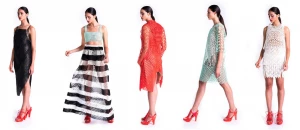Currently, less than half of used clothes are collected for reuse or recycling when they reach their end-of-life, leading worn (and sometimes unworn) garments to be discarded in landfill sites. This staggering statistic implicates both consumers and brands in the environmental and social consequences of fashion waste - so how can you, as a business, produce more responsibly and consciously and use your platform to engage audiences with the conversation around circular design?
This Masterclass explores the technology behind textile recycling, helping you master the key terminologies along the way. We also speak to experts and get their take on current environmental and social issues impacted by textile recycling processes, as well as the current status of big brands' commitment to circularity in the industry. We also dive deep into the world of materials, so essential for this fascinating topic, which, at its heart is about what our fabrics are made up of, how they break down, and how their life can be extended to create a more positive impact on the planet.
In this Masterclass, you will learn:
- About the environmental, social and economic impacts of recycling textiles
- The differences between mechanical and chemical recycling processes
- Why circular systems offer such a huge opportunity for sustainable fashion and how designers and brands can help contribute to change
- About a range of cutting-edge bio-based and waste-based materials
- About certifications for recycled textiles and how to choose the right one for you
- How to reduce clothing waste by increasing engagement with your brand and mission
- A rundown of terminology, brand names and recycled fabric mills
-
Why we should recycle and upcycle textiles
with Charlie Bradley RossRead More...Summary
Recycling is one of the key principles of a circular economy, yet there have been a lot of questions raised recently about whether it is a viable alternative to the current system. In this video, I explore the damaging effects of our current, linear processes on the environment, the benefits recycling textiles and fashion can bring, and the arguments for and against recycled synthetic fabrics.
-
Extending the afterlife of clothes with takeback schemes
with Jack OstrowskiRead More...Summary
Takeback schemes aim to reduce fashion waste by both providing an alternative to landfill for unwanted clothes and changing consumer mindsets towards recycling.
Jack Ostrowski, CEO and founder of the world's first digital takeback scheme reGAIN, knows a thing or two about the current state of fashion waste. With 15 years of experience in the industry, working with some of the biggest retail giants, we were thrilled to have the opportunity to get Jack's take on circular systems, re-educating consumers of fast fashion and how he approaches sustainability in fashion with an entrepreneurial mindset.
-
Creating new sustainable cellulosic fibres from discarded clothing
with Jenny FredricsdotterRead More...Summary
One of the key sustainability issues around the use of wood pulp for the production of fabrics like viscose and lyocell is the destruction of forests that are impossible to replace. But what if there was a waste material that we have a vast quantity of already that could replace wood pulp in the cellulosic fibre process?
We are thrilled to present the Circulose arm of the Swedish re:newcell project that takes discarded clothing and turns it into a brand new cellulosic fibre. In this lesson, you'll learn more about the material, the science behind the process and why it is sustainable.
-
Recycled Fabrics: Producers, Suppliers and Processes
with Stephanie SteeleRead More...Summary
As small brands and independent studios, sourcing can take up a huge chunk of time - and rightly so, because fabric is the backbone of your product. The textile supply chain is complex, with some mills producing only the fibres, some producers only supplying the fabric in large quantities, and some people in the chain are not manufacturers at all but the certifying body. So to help you navigate the terminology and types of suppliers within the specific recycled textile realm, we've put together a starting block lesson.
Read on for the well-known recycled yarn innovators, the producers creating yarn from recycled feedstock, and the suppliers able to sell you metres of recycled fabrics. This is not a complex list, just one that aims to better point you in the right direction.
-
Research, Development and Patenting of Recycled Fabrics
with Linus MuellerRead More...Summary
Circular Systems™ are a material science company that have developed new fibres from waste materials. In this lesson, we chat with Linus Mueller who heads up the R&D and IP teams at the company, to find out what their fibre made from post-industrial (pre-consumer) textile waste is all about, along with what goes into the research and development of such materials as Texloop™. We also discover the importance of intellectual property and patenting for material science companies and their innovative solutions.
-
The Environmental and Economic Impacts of Recycling Textiles
with Cyndi RhoadesRead More...Summary
Worn Again Technologies have developed a trail-blazing polymer recycling process that is allowing the fashion industry to take several giant steps towards achieving greater circularity. The company has already secured the buy-in of several big-name brands and pivotal investments that make it one to watch for anyone interested in the potential offered by recycling.
In this lesson, hear direct from Worn Again's founder Cyndi Rhoades about the technology behind their developments and the environmental and economic impacts of converting existing textiles and clothing back into useable, high-quality yarn.
-
Understanding How To Use Bio and Waste-Based Materials
with Material DrivenRead More...Summary
We were joined by the founding partners of MaterialDriven, a design agency and materials library to learn from Adele and Purva how to and why we should work with so-called "healthy materials": those that are bio-based, waste-based and envelop responsible practices and positive impacts in their production and life cycle.
Recycled materials that come from synthetic-based i.e. fossil fuel feedstocks provide us with a comparative outcome that will slot easily into various applications, including fashion though also stretching to buildings and furniture. When it comes to "biomaterials", "bio-based materials" and "waste-based materials" there is a lot of uncertainty in a realm that feels new. There are innovations abounding here, but in actual fact, a lot of the technology and feedstocks are based on traditional methods and materials, just updated to be, for instance, beneficial in a circular system.
MaterialDriven provide a materials library, education and consultancy for brands and designers across all industries, including architecture, interiors, packaging, fashion and product design. In this lesson, Adele and Purva take us through the exciting materials commercially available on the market, along with considerations to make if you are interested in using them for your own product, and how these less-known feedstocks can have positive impacts socially, economically and environmentally. Along with providing you with a USP, if you can understand how to utilise healthy materials over synthetics or recycled synthetics, it will provide you with a much more creative and systemic approach to design.
-
An Introduction to Certifications in Recycled Textiles
with Dorothee Sarah SpeharRead More...Summary
Certifications and standards are an excellent way for brands to communicate transparency to their customers - but they're also a tool for brands and businesses to trust their supply chains. Recycled textiles come with their own set of complexities, so in this lesson, learn about the main standards out there for ensuring sustainability and ethical practices in recycled textiles, what they cover and the benefits for a brand.
-
Decreasing Clothing Discard By Increasing Engagement
with Stephanie SteeleRead More...Summary
Joining us for July's panel discussion about recycled textiles, we welcomed Hannah Carter, campaign manager of London's Love Not Landfill recycling campaign, and Olivia Weber, the designer behind Trashion Factory, an upcycled fashion label. Find out more about textile recycling systems in the UK, how designers can engage their audience with issues of textile waste, and where to go to source discarded clothes and deadstock fabrics.
-
Challenges and Opportunities for Recycled Wool Textiles in the UK
with John ParkinsonRead More...Summary
We spoke with Dr. John Parkinson, founder of Yorkshire-based wool recycling facility 'iinouiio' to learn about how the UK woollen recycling textile trade has changed over the last 50 years, and both the challenges and opportunities in revitalising this industry onshore. This is a two-part Lesson, with part one in the Technical Tutorials looking at the processing and history of this fantastic trade.
Thumbnail image from Material District.
-
100% Recyclable Lyocell from 100% Textile Waste
with Charlie Bradley RossRead More...Summary
Textile recycling has long since been something that has been strived for, but only sometimes possible. However, as technology improves, so does the possibility for textile recycling to become ever more prevalent. In this lesson, we take a look at one of these exciting innovations.
-
Recycling Unrecyclable Textiles
with David SudolskyRead More...Summary
In this interview, we are talking to David Sudolsky, the President and CEO of Anellotech, a US based company doing incredible things in the recycling sphere.
Founded in 2008, Anellotech is a sustainable technology company that has invented and is developing innovative technologies to produce cost effective, renewable chemicals and to recycle mixed plastic waste. Recently, they have turned their technology to textiles, developing ways to recycle previously unrecyclable materials.
Interviews
Usedem: Upcycled Denim, Remade in China
Thursday Aug 1st, 2019
Kyle Parsons, Indosole: Repurposed tyres into sustainable footwear
Friday Nov 1st, 2019
ReLondon: Developing Circularity In Urban Environments
Monday Sep 14th, 2020
Recycling Unrecyclable Textiles, with David Sudolsky, President & CEO of Anellotech
Wednesday Mar 1st, 2023Technical Tutorials
Chemical & Mechanical Plastic Recycling
Monday Oct 1st, 2018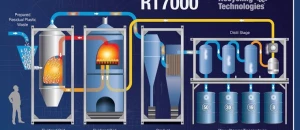
Processing Discarded Wool Clothing Into Recycled Fibre
Monday Jan 4th, 2021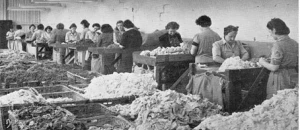
Follow on Masterclasses:
The Environmental Impacts Of Washing And Laundry
Additional Reading
Future Fabrics Expo 2021: Biodiversity, Natural Fibres and Regenerative Textiles
Sunday Jul 11th, 2021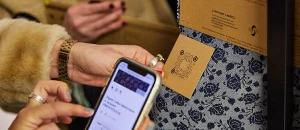
How to create positive impact with natural materials
Monday Apr 12th, 2021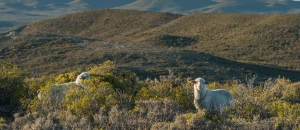
Fabrics From Food Waste, Mushroom And Weeds
Wednesday Mar 10th, 2021
Does Bioengineering Hold the Key to Our Material Future?
Monday Feb 15th, 2021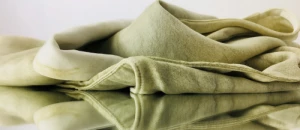
What's In Your Mending Pile This Winter?
Tuesday Oct 27th, 2020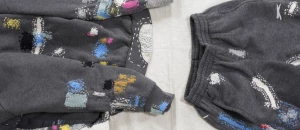
In Conversation With Valentina Karellas: Waste Yarns Into Made To Order London Knitwear
Wednesday Sep 16th, 2020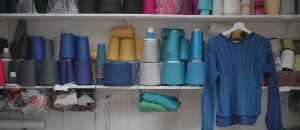
Say Yes to Second Hand September with Oxfam
Monday Sep 7th, 2020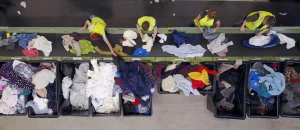
In Conversation With Bundle 'n Joy: Possibly the First Ever Maternity Clothes Rental Scheme
Tuesday Aug 4th, 2020
What can you make with our Recycled Polyester Satin fabrics?
Wednesday Jul 1st, 2020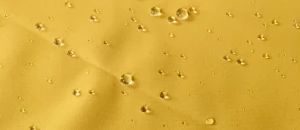
What are the benefits of using 3D Printing in Fashion?
Saturday Jun 13th, 2020